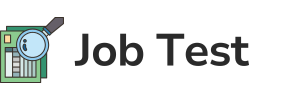Career Tests for Neurodivergent Individuals: Finding Your Professional Path
- 14 May 2025

For neurodivergent individuals—including those with autism, ADHD, dyslexia, and other neurological differences—finding the right career path can be both challenging and rewarding. Standard career assessments often fail to account for the unique strengths and challenges that neurodivergent people bring to the workplace. Fortunately, specialized career tests are emerging to address this gap.
The neurodivergent community represents a vast pool of untapped talent with unique perspectives, exceptional problem-solving abilities, and specialized skills. According to research, neurodivergent individuals often excel in pattern recognition, detail orientation, and creative thinking—valuable assets in many professional fields.
Why Traditional Career Tests May Fall Short
Traditional career assessments typically focus on conventional workplace behaviors and social norms that may not align with neurodivergent experiences. These tests might emphasize skills like networking or multitasking while overlooking the exceptional abilities many neurodivergent individuals possess in areas like focused attention, systematic thinking, and innovative problem-solving.
Specialized Career Assessments for Neurodivergent Individuals
Several organizations have developed career tests specifically designed for neurodivergent populations. These assessments focus on identifying strengths rather than deficits and matching individuals with environments where they can thrive.
- Specialisterne Assessment Process - Developed specifically for autistic individuals, focusing on cognitive abilities, problem-solving skills, and pattern recognition
- Neurodiversity Network Career Compass - Takes into account sensory sensitivities and communication preferences when suggesting career paths
- ADHD Career Assessment Protocol - Identifies environments where individuals with ADHD can channel their creativity and energy productively
- Dyslexic Thinking Skills Assessment - Recognizes the unique spatial reasoning and creative abilities often found in dyslexic individuals
Key Factors These Assessments Consider
| Factor | Why It Matters | Career Implications |
|---|---|---|
| Sensory Environment | Many neurodivergent individuals have specific sensory needs | Determines workplace settings where an individual can focus and feel comfortable |
| Communication Style | Different preferences for direct communication vs. nuanced interaction | Suggests fields where communication style is a natural fit |
| Hyperfocus Capability | Ability to deeply concentrate on specific tasks | Identifies careers that reward deep expertise and sustained attention |
| Executive Functioning | Variations in planning, organizing, and prioritizing abilities | Matches with jobs offering appropriate structure or flexibility |
Self-Advocacy and Assessment Results
When taking these specialized career tests, remember that they're tools for self-discovery, not definitive answers. Use results as starting points for exploration rather than rigid guidelines. Combining assessment results with personal interests and values typically leads to the most satisfying career choices.
Many neurodivergent individuals find success by advocating for accommodations that help them thrive. Assessment results can provide language and evidence to support these conversations with employers about reasonable workplace adjustments.
Above all, remember that neurodivergence brings valuable perspectives to the workplace. The right career test can help you identify not just jobs you can do, but environments where your unique cognitive style becomes your greatest professional asset. As workplaces increasingly recognize the competitive advantage of neurodiversity, demand continues to grow for the distinctive talents neurodivergent professionals bring to their fields.



